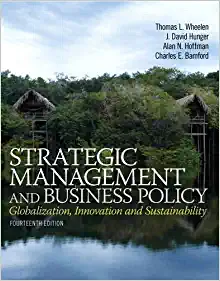



see attached
Pakistan and Japan both produce only rice and tomatoes. Each country has 960 labourers. In one month, Pakistan can produce either 80 tonnes of rice or 320 tonnes of tomatoes. Japan can produce either 120 tonnes of rice or 30 tonnes of tomatoes. The countries can also devote labourers to both industries in order to produce and consume both goods. Suppose that initially, Japan and Pakistan decide to allocate workers to both types of production. Japan is currently consuming 40 tonnes of rice and 20 tonnes of tomatoes, while Pakistan is consuming 50 tonnes of rice and 120 tonnes of tomatoes. Remember, this is a long-answer question. You must show all calculation to receive credit for your work. No work, no credit. Part a) Which country has an absolute advantage in producing rice? Tomatoes? Part b) Which country has a comparative advantage in producing rice? Tomatoes? Part c) If they agree to specialize and trade, what will Pakistan produce? What will Japan produce? Part d) If the countries agreed to exchange 180 tonnes of tomatoes for 60 tonnes of rice, calculate the gains to specialization and trade for each country.Pakistan and Japan both produce only rice and tomatoes. Each country has 960 labourers. In one month, Pakistan can produce either 80 tonnes of rice or 320 tonnes of tomatoes. Japan can produce either 120 tonnes of rice or 30 tonnes of tomatoes The countries can also devote labourers to both industries in order to produce and consume both goods. Suppose that initially, Japan and Pakistan decide to allocate workers to both types of production. Japan is currently consuming 40 tonnes of rice and 20 tonnes of tomatoes, while Pakistan is consuming 50 tonnes of rice and 120 tonnes of tomatoes Remember, this is a long-answer question. You must show all calculation to receive credit for your work. No work, no credit Part a) Which country has an absolute advantage in producing rice? Tomatoes? Part b) Which country has a comparative advantage in producing rice? Tomatoes? Part c) If they agree to specialize and trade, what will Pakistan produce? What will Japan produce? Part d) If the countries agreed to exchange 180 tonnes of tomatoes for 60 tonnes of rice, calculate the gains to specialization and trade for each countryPakistan and Japan both produce only rice and tomatoes. Each country has 960 labourers. In one month, Pakistan can produce either 80 tonnes of rice or 320 tonnes of tomatoes. Japan can produce either 120 tonnes of rice or 30 tonnes of tomatoes, The countries can also devote labourers to both industries in order to produce and consume both goods Suppose that initially, Japan and Pakistan decide to allocate workers to both types of production. Japan is currently consuming 40 tonnes of rice and 20 tonnes of tomatoes, while Pakistan is consuming 50 tonnes of rice and 120 tonnes of tomatoes. Remember, this is a long-answer question. You must show all calculation to receive credit for your work No work, no credit Part a) Which country has an absolute advantage in producing rice? Tomatoes? Part b) Which country has a comparative advantage in producing rice? Tomatoes? Part c) If they agree to specialize and trade, what will Pakistan produce? What will Japan produce? Part d) If the countries agreed to exchange 180 tonnes of tomatoes for 60 tonnes of rice, calculate the gains to specialization and trade for each countryPakistan and Japan both produce only rice and tomatoes. Each country has 960 labourers. In one month, Pakistan can produce either 80 tonnes of rice or 320 tonnes of tomatoes. Japan can produce either 120 tonnes of rice or 30 tonnes of tomatoes, The countries can also devote labourers to both industries in order to produce and consume both goods Suppose that initially, Japan and Pakistan decide to allocate workers to both types of production. Japan is currently consuming 40 tonnes of rice and 20 tonnes of tomatoes, while Pakistan is consuming 50 tonnes of rice and 120 tonnes of tomatoes. Remember, this is a long-answer question. You must show all calculation to receive credit for your work No work, no credit Part a) Which country has an absolute advantage in producing rice? Tomatoes? Part b) Which country has a comparative advantage in producing rice? Tomatoes? Part c) If they agree to specialize and trade, what will Pakistan produce? What will Japan produce? Part d) If the countries agreed to exchange 180 tonnes of tomatoes for 60 tonnes of rice, calculate the gains to specialization and trade for each country














